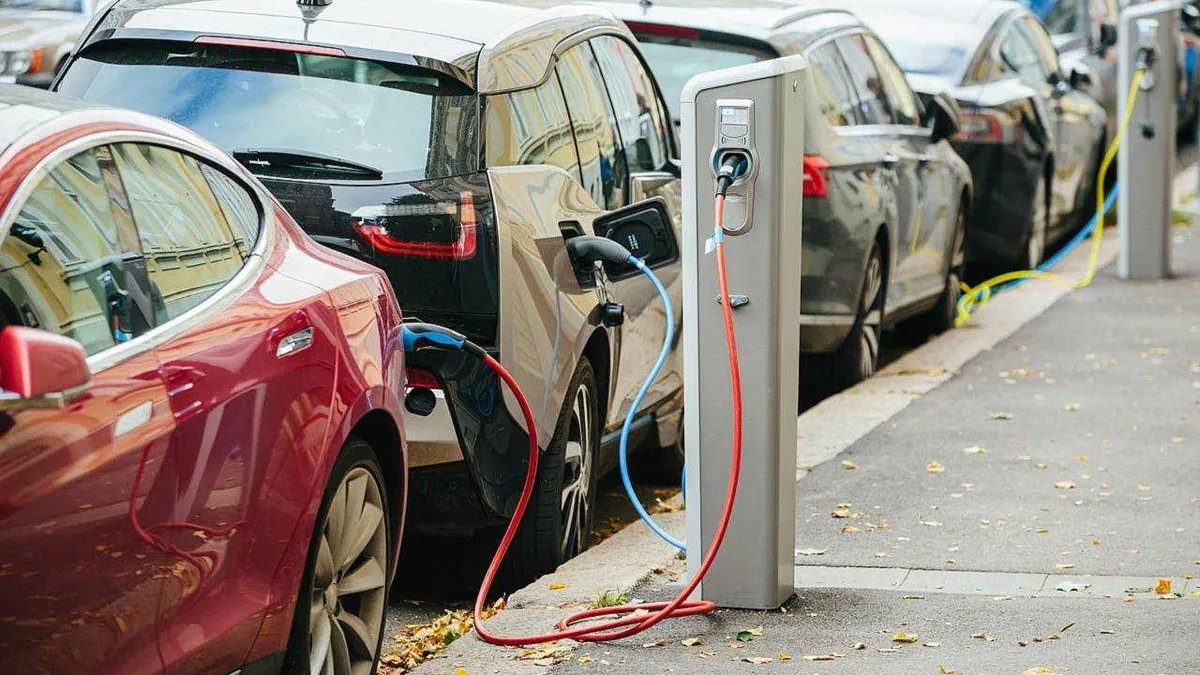UK's Electric Vehicle Mandate Faces Hurdles Amid Slow Adoption
The UK's ambitious zero-emission vehicle mandate encounters challenges as EV sales growth slows. High prices and infrastructure concerns deter consumers, while manufacturers struggle to meet targets.

The UK government's ambitious plan to accelerate electric vehicle (EV) adoption is facing significant challenges, as consumer hesitation and market realities collide with policy goals. The Zero Emission Vehicle (ZEV) mandate, implemented in January 2024, requires 22% of new cars sold in the UK to be electric this year, with the target rising to 80% by 2030.
Robert Forrester, chief executive of Vertu Motors, one of the UK's largest car dealers, has reported that some manufacturers are resorting to withholding petrol car supplies to artificially boost their EV sales share. This strategy highlights the growing tension between policy objectives and market demand.
Consumer reluctance remains a significant barrier to EV adoption. Marc Palmer, head of insights at Auto Trader, points to high prices and perceived inadequate charging infrastructure as primary concerns. The affordability issue has been exacerbated by several factors:
- Rising interest rates increasing car finance costs
- New car prices surging 40% since 2019
- Disappearance of lower-priced models from the market

The used EV market presents a more optimistic picture, with "middle-aged" models (3-5 years old) reaching near price parity with petrol counterparts. However, the rapid depreciation of EVs is causing significant challenges for fleet operators, who account for about 80% of EV sales.
Gerry Keaney, chief executive of the British Vehicle Rental and Leasing Association (BVRLA), warned in July 2024 that the used EV market was approaching "market failure" due to severe depreciation issues. This situation is forcing leasing companies to increase deposits and monthly payments, further deterring potential EV buyers.
Industry leaders are calling for government intervention to bridge the gap between policy ambitions and market realities. Mike Hawes, chief executive of the Society of Motor Manufacturers and Traders (SMMT), advocates for:
- Mandated investment in charging infrastructure
- Consumer incentives, such as VAT reduction on new EV purchases
- Fair taxation treating EVs as essentials rather than luxuries
- Positive messaging about the benefits of electric driving
"Until that cost differential between EVs and internal combustion engine cars has come much closer, there will always be a challenge – and you'll need some level of incentive to close that gap."
While the government maintains that the UK car market is "growing strongly," the industry faces a critical juncture. The success of the ZEV mandate and the broader transition to electric vehicles will depend on addressing consumer concerns, improving affordability, and potentially reconsidering government support mechanisms.
As the UK strives to maintain its position in the global automotive industry, which accounts for about 13% of the country's export of goods, the path to widespread EV adoption remains challenging. The coming months will be crucial in determining whether the ambitious targets set by the ZEV mandate can be reconciled with market realities and consumer preferences.


































